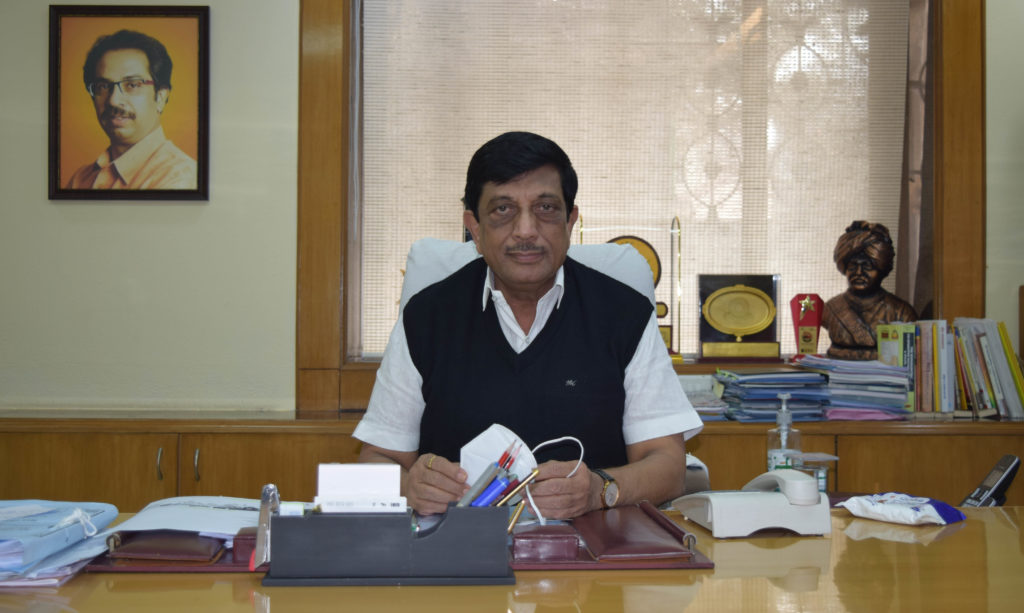Maharashtra Urban Cooperative Banks Federation Chairman Vidyadhar Anaskar who doubles as the Chairman of Pune based Vidya Sahakari Bank has prepared a model draft proposal for UCBs for amending their Bye laws for constituting Board of Management.
Meanwhile, the draft has been submitted to the Reserve Bank of India for their approval. After the approval any UCB can adopt this without getting it approved by RBI.
In a telephonic communication with Indian Cooperative correspondent, Anaskar said, in a recent meeting held with top officials of RBI at Mumbai, we had informed them that despite extension of the deadline for constituting BoM I think it is not possible for RBI to approve the draft of each bank within six months. So, I suggested to them that Vidya Bank had prepared a model draft and submitted it to RBI for approval which could be replicated by other banks. The latter could do without framing their own”, he added.
Anaskar also pointed out that as per the original Sec 49C of BR Act, which is now being made applicable to co-op Banks, no application for alterations in the bye laws of a co op bank is maintainable unless RBI certified that it has no objection to such alterations.
The Model draft Bye laws for BoM is given below:
1. Objective –
Under the present legal framework, the Board of Directors of the Bank perform both the executive and supervisory roles and has the responsibility to oversee the functioning of the Bank as a co-operative society as well as its functions as a Bank. Since the Bank is accepting public deposits, it is imperative that a separate mechanism be put in place to protect the interests of depositors. Accordingly, it is proposed to implement a Board of Management consisting of members with special knowledge and practical experience in banking to facilitate professional management and focused attention to banking related activities of the Bank.
2.Constitution –
The Board of Directors (BoD) shall constitute Board of Management (BoM) and may delegate such powers as deemed necessary for the proper functioning of the Bank. The BoM shall consist of 6 members out of which 3 members shall be from BoD and 3 members from outside BoD. The CEO will be a non-voting member.
3.Qualification of members of BoM-
While constituting BoM the BoD of Bank shall carry out the process of due diligence to determine the suitability of the person for the appointment of the member of BoM based upon the qualification, expertise, track record, integrity and other fit and proper criteria.
All the members of BoM should have at least Master’s degree in any faculty or shall have professional qualifications like CA/CS/ICWA/ MCM/ MCA/ Computer Engineer/ MBA (finance) etc.
In addition to the above the members of the BoM shall have practical experience of minimum five years in one or more of the following fields :-
1) Accountancy 2) Banking 3) Co-operation 4) Law 5) Economics 6)Information Technology 7) Finance 8)Agriculture and rural economy 9) Small Scale Industry 10) Any other subject, which would, in opinion of the Reserve Bank, be useful for the Bank.
4.Functions of Board of Management –
The BoM shall exercise oversight over the banking related functions of the UCBs, assist the BoD on formulation of the policy and any other related matters specifically delegated to it by the Board for proper functioning of the bank. The functions of the BoM shall include the following:
i) Rendering expert advice on all proposals being put up to the Board or any Committee of the Board for sanction of loans.
ii) Recommending action for recovery of NPAs, One Time Settlement or Compromise Settlement and assisting the Board in monitoring the same.
iii) Overseeing the management of funds and borrowings in the bank.
iv) Recommending proposals for investment of bank’s funds as per the board approved policy.
v) Oversight on internal controls and systems and risk management in the bank.
vi) Exercising oversight on implementation of computerization, technology adoption and other incidental issues in the bank.
vii) Overseeing internal audit and inspection functions including compliance.
viii) Oversight on complaint redressal system.
ix) Assisting the Board in formulation of policies related to banking functions, illustratively loan policy, investment policy, recovery policy, ALM and Risk management, etc. to ensure that policies are in tune with RBI guidelines.
x) Any other responsibility as may be delegated to it by the BoD.
NB: In the event where the BoD differs with the recommendations of BoM, it shall do so by recording, in writing, the reasons thereof.
